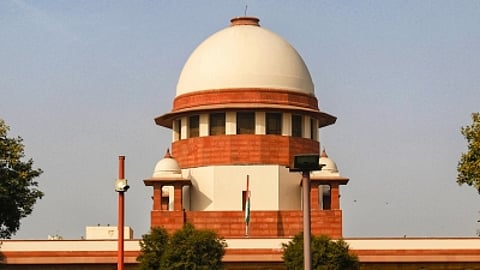

The Supreme Court has admitted a plea made by a non-practising Muslim seeking a declaration that those who did not want to be governed by the Muslim Personal Law should be allowed to be governed by the secular law of the country. PM Safiya, general secretary of ex-Muslims of Kerala, a group formed for those who left Islam in the state, submitted the plea as a non-practising Muslim who wanted to be governed by the Indian Succession Act, 1925 instead of the Shariat Act 1937, especially in matters concerning inheritance.
By the Muslim Personal Act, women are entitled to only half of what their male counterparts (sibling / partner) gets. An earlier petition filed by the Khur’aan Sunnath Society, in which too Safiya is a party, asking equal property rights for women, is also pending before the court. In her new petition, Safiya says that while the earlier plea was for all Muslim women, the present one is for ‘those who were born Muslim but wanted to leave the religion.’
The Supreme Court bench, comprising Chief Justice DY Chandrachud, decided to issue notice to the Governments of India and Kerala, terming it an important issue, reports the LiveLaw. They requested the Attorney General to nominate a law officer who can assist the court.
Both Safiya and her father are non-practising Muslims who have not officially left the religion. Any person who is born as a Muslim is by default governed by the Muslim Personal Law (Shariat) Application Act, 1937. And those who leave Islam will not be entitled to any inheritance from the parent’s property. Safiya says in her plea that she is apprehensive about the law being applied to the inheritance of her property to her only daughter. If she remains in the religion, the daughter will only get 50% of her wealth upon her demise, and the rest will go to the father’s brothers. Safiya herself will get only one third of her father’s wealth, and two thirds of it will go to her brother.
She points out that even if she manages to get a no-religion, no-caste certificate from an authority, she will not be governed by the Indian Succession Act, and as such her fundamental rights under Article 25 (freedom to practice religion) of the Constitution is “made meaningless”. The plea quotes from the law laid down by the court: “the fundamental postulate of secularism which treats all religions on an even platform and allows to each individual the fullest liberty to believe or not to believe.”
Justice Chandrachud had at first expressed reservations, pointing out that section 58 of the Indian Succession Act says that the law is not applicable to Muslims. But then section 3 of the Shariat Act says that unless a person makes a declaration they will not be governed by the personal law. But this will mean that, there will be no act to govern her by. Safiya in her plea, stresses that it will be a “failure of justice” if she is to be governed by the Sharia law even after officially leaving the religion. As such, her advocate, Prashant Padmanabhan, urged the court to give a declaration under Article 32 of the Constitution (right to constitutional remedies), allowing her to be governed by the secular law of the country.
The court finally agreed to consider the matter, which will be next heard in the second week of July.